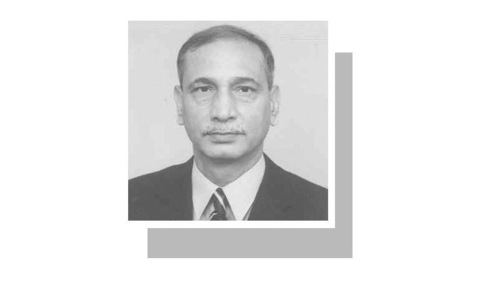HYDERABAD: Sindh Education Minister Jam Mehtab Dahar has said that increased agricultural produce can easily alleviate poverty and boost non-farm employment opportunities.
He was speaking at the 10th convocation of Sindh Agriculture University (SAU) Tandojam on Thursday. Congratulating the successful students, he said they should not depend only on teachers; they should make efforts to learn from books which were also a great source of learning.
It was a fact that agriculture played a pivotal role in turning the wheel of economic growth of the country, contributing over 20 per cent of gross domestic product (GDP). The farm sector was a primary supplier of raw material to industry besides improving exports substantially and absorbing 44pc of the total labour force, he said.
He said most economic activities were based on the agriculture sector because agriculture not only ensured food security to the nation but also provided cotton, sugar cane, rice, oil-seed, meat and milk to various agro-based, small- and large-scale industries as raw material.
The minister said agriculture development had a significant impact on rural uplift. He maintained that agriculture faced a lot of problems, which needed to be addressed for a promising future. Climate change, increasing poverty and lack of access of common farmer to agricultural inputs, water-logging, salinity and shortage of water were problems confronting farming communities, he explained.
It was a matter of satisfaction that SAU being the only agriculture university in Sindh was progressing satisfactorily. He highlighted significant improvements in the university like increase in PhD ratio by 50pc among faculty members, award of maximum number of PhDs (18) in one year, publication of maximum number of research papers, undertaking of research projects with national and internal funding, development of constituent college in Khairpur, approval of a university campus by the Higher Education Commission in Umerkot etc.
The SAU conferred academic degrees on 350 graduates at the convocation. Two PhD scholars and 57 postgraduates received degrees at the event while 24 medals were awarded to the best students of different faculties, departments, disciplines and in extra-curricular activities.
Vice-Chancellor Dr Mujeebuddin Sahrai said that in the past few years, SAU pursued policies to enhance student enrolment, improve quality of degree programmes, pursue human resource development for faculty members, focus on problem-oriented research and development programmes and to establish effective linkages with stakeholders. He said student enrolment had improved whereby the SAU had current enrolment of 6,613 students (including eight per cent girl students).
He said annual intake of students in undergraduate programmes was about 1,500 and in postgraduate degree programmes, it was about 500. He said it was a matter of honour for him to inform that PhD admissions had increased from 45 during 2014 to 97 in 2015, he said. Faculty strength of the SAU was 254 and out of those faculty members, over 50pc were PhD degree holders, which was the maximum ratio of PhDs in the history of SAU since its inception in 1977.
He said SAU focused on human resource development to increase PhD faculty strength to at least 60pc in the next three to four years. He said SAU had awarded 42 PhD scholarships under HEC-sponsored project ‘Strengthening and Development of the SAU Tandojam” and of them 27 successfully completed their PhDs.
He said SAU was now implementing two dozen research projects with total budgetary provision of over Rs80m while share of international funding was about 25pc for research and development. Over one dozen projects, amounting to Rs60m, were in pipeline and awaited approval of sponsoring agencies. Similarly, the number of research publications of the university’s faculty in HEC-recognised journals had increased, he added.
Published in Dawn, December 23rd, 2016














































Dear visitor, the comments section is undergoing an overhaul and will return soon.